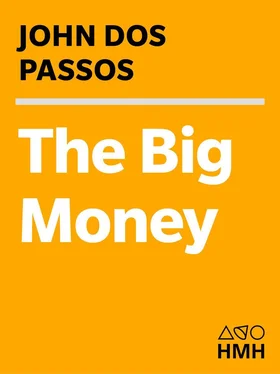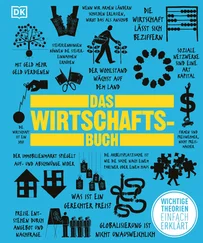the prices obtained for packing house products were the results of purely economic laws. Official figures prove that if wheat prices are to respond to the law of supply and demand
PIGIRON OUTPUT SHARPLY CURBED
And if you should be dining with a little stranger
Red lights seem to warn you of a danger
Don’t blame it all on Broadway
Veblen,
a greyfaced shambling man lolling resentful at his desk with his cheek on his hand, in a low sarcastic mumble of intricate phrases subtly paying out the logical inescapable rope of matteroffact for a society to hang itself by,
dissecting out the century with a scalpel so keen, so comical, so exact that the professors and students ninetenths of the time didn’t know it was there, and the magnates and the respected windbags and the applauded loudspeakers never knew it was there.
Veblen
asked too many questions, suffered from a constitutional inability to say yes.
Socrates asked questions, drank down the bitter drink one night when the first cock crowed,
but Veblen
drank it in little sips through a long life in the stuffiness of classrooms, the dust of libraries, the staleness of cheap flats such as a poor instructor can afford. He fought the boyg all right, pedantry, routine, timeservers at office desks, trustees, collegepresidents, the plump flunkies of the ruling businessmen, all the good jobs kept for yesmen, never enough money, every broadening hope thwarted. Veblen drank the bitter drink all right.
The Veblens were a family of freeholding farmers.
The freeholders of the narrow Norwegian valleys were a stubborn hardworking people, farmers, dairymen, fishermen, rooted in their fathers’ stony fields, in their old timbered farmsteads with carved gables they took their names from, in the upland pastures where they grazed the stock in summer.
During the early nineteenth century the towns grew; Norway filled up with landless men, storekeepers, sheriffs, moneylenders, bailiffs, notaries in black with stiff collars and briefcases full of foreclosures under their arms. Industries were coming in. The townsmen were beginning to get profits out of the country and to finagle the farmers out of the freedom of their narrow farms.
The meanspirited submitted as tenants, daylaborers; but the strong men went out of the country
as their fathers had gone out of the country centuries before when Harald the Fairhaired and St. Olaf hacked to pieces the liberties of the northern men, who had been each man lord of his own creek, to make Christians and serfs of them,
only in the old days it was Iceland, Greenland, Vineland the northmen had sailed west to; now it was America.
Both Thorstein Veblen’s father’s people and his mother’s people had lost their farmsteads and with them the names that denoted them free men.
Thomas Anderson for a while tried to make his living as a traveling carpenter and cabinetmaker, but in 1847 he and his wife, Kari Thorsteinsdatter, crossed in a whalingship from Bremen and went out to join friends in the Scandihoovian colonies round Milwaukee.
Next year his brother Haldor joined him.
They were hard workers; in another year they had saved up money to preempt a claim on 160 acres of uncleared land in Sheboygan County, Wisconsin; when they’d gotten that land part cleared they sold it and moved to an all-Norway colony in Manitowoc County, near Cato and a place named Valders after the valley they had all come from in the old country;
there in the house Thomas Anderson built with his own tools, the sixth of twelve children, Thorstein Veblen was born.
When Thorstein was eight years old, Thomas Anderson moved west again into the blacksoil prairies of Minnesota that the Sioux and the buffalo had only been driven off from a few years before. In the deed to the new farm Thomas Anderson took back the old farmstead name of Veblen.
He was a solid farmer, builder, a clever carpenter, the first man to import merino sheep and a mechanical reaper and binder; he was a man of standing in the group of Norway people farming the edge of the prairie, who kept their dialects, the manner of life of their narrow Norway valleys, their Lutheran pastors, their homemade clothes and cheese and bread, their suspicion and stubborn dislike of townsmen’s ways.
The townspeople were Yankees mostly, smart to make two dollars grow where a dollar grew before, storekeepers, middlemen, speculators, moneylenders, with long heads for politics and mortgages; they despised the Scandihoovian dirtfarmers they lived off, whose daughters did their wives’ kitchenwork.
The Norway people believed as their fathers had believed that there were only two callings for an honest man, farming or preaching.
Thorstein grew up a hulking lad with a reputation for laziness and wit. He hated the irk of everrepeated back-breaking chores round the farm. Reading he was happy. Carpentering he liked or running farmmachinery. The Lutheran pastors who came to the house noticed that his supple mind slid easily round the corners of their theology. It was hard to get farmwork out of him, he had a stinging tongue and was famous for the funny names he called people; his father decided to make a preacher out of him.
When he was seventeen he was sent for out of the field where he was working. His bag was already packed. The horses were hitched up. He was being sent to Carleton Academy in Northfield, to prepare for Carleton College.
As there were several young Veblens to be educated their father built them a house on a lot near the campus. Their food and clothes were sent to them from the farm. Cash money was something they never saw.
Thorstein spoke English with an accent. He had a constitutional inability to say yes. His mind was formed on the Norse sagas and on the matteroffact sense of his father’s farming and the exact needs of carpenterwork and threshingmachines.
He could never take much interest in the theology, sociology, economics of Carleton College where they were busy trimming down the jagged dogmas of the old New England bibletaught traders to make stencils to hang on the walls of commissionmerchants’ offices.
Veblen’s collegeyears were the years when Darwin’s assertions of growth and becoming were breaking the set molds of the Noah’s Ark world,
when Ibsen’s women were tearing down the portieres of the Victorian parlors,
and Marx’s mighty machine was rigging the countinghouse’s own logic to destroy the countinghouse.
When Veblen went home to the farm he talked about these things with his father, following him up and down at his plowing, starting an argument while they were waiting for a new load for the wheatthresher. Thomas Anderson had seen Norway and America; he had the squarebuilt mind of a carpenter and builder, and an understanding of tools and the treasured elaborated builtupseasonbyseason knowledge of a careful farmer,
a tough whetstone for the sharpening steel of young Thorstein’s wits.
At Carleton College young Veblen was considered a brilliant unsound eccentric; nobody could understand why a boy of such attain ments wouldn’t settle down to the business of the day, which was to buttress property and profits with anything usable in the debris of Christian ethics and eighteenth-century economics that cluttered the minds of collegeprofessors, and to reinforce the sacred, already shaky edifice with the new strong girderwork of science Herbert Spencer was throwing up for the benefit of the bosses.
People complained they never knew whether Veblen was joking or serious.
In 1880 Thorstein Veblen started to try to make his living by teaching. A year in an academy at Madison, Wisconsin, wasn’t much of a success. Next year he and his brother Andrew started graduate work at Johns Hopkins. Johns Hopkins didn’t suit, but boarding in an old Baltimore house with some ruined gentlewomen gave him a disdaining glimpse of an etiquette motheaten now but handed down through the lavish leisure of the slaveowning planters’ mansions straight from the merry England of the landlord cavaliers.
Читать дальше












